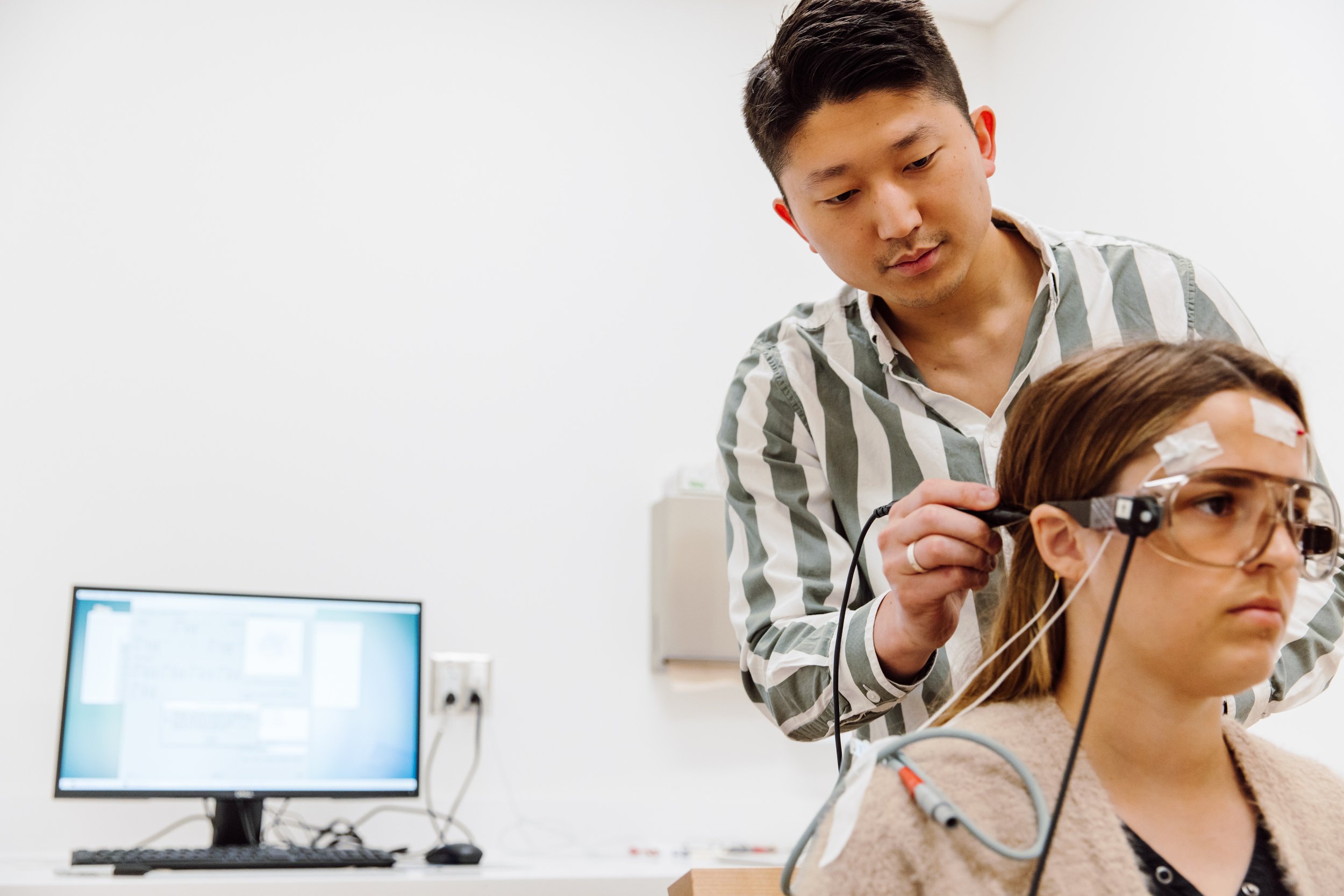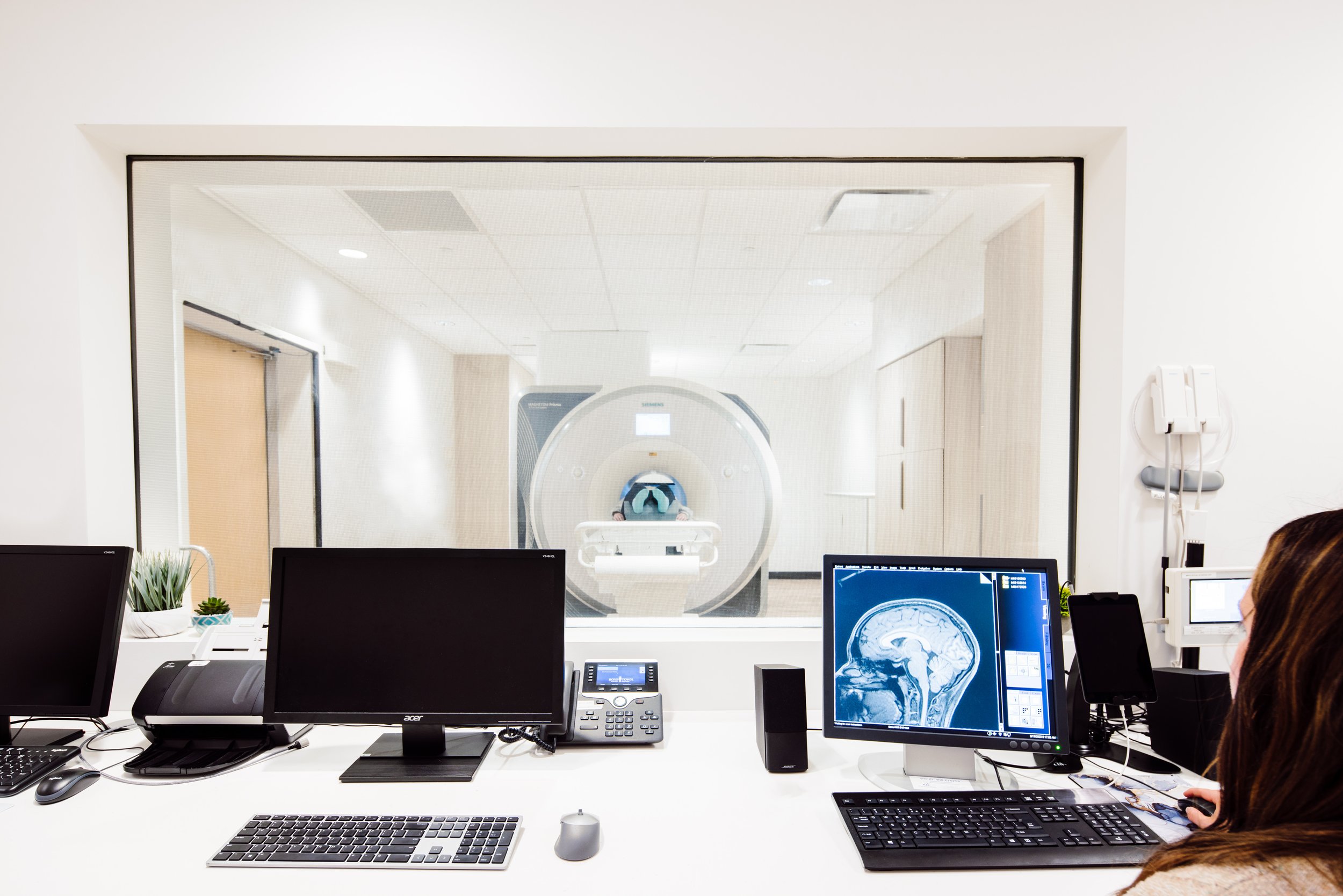
NEUROSCIENCE
PHD PROGRAM
Boys Town National Research Hospital and Creighton University have partnered to offer a doctoral program in Pharmacology and Neuroscience. The Institute for Human Neuroscience brings internationally renowned neuroimaging and systems neuroscience expertise to the program, which builds on Creighton’s cutting-edge expertise in molecular and cellular neuroscience. Areas of focus include developmental cognitive neuroscience, neuroscience of aging, clinical cognitive neuroscience, neural bases of psychiatric disorders, as well as motor and sensory neuroscience. Doctoral students in our programs have been broadly successful in receiving highly competitive NIH fellowships and other major national and international awards, as well as serving as first-authors on high impact publications.
Students in these subareas of the doctoral program work hands-on with incredible faculty from the Institute for Human Neuroscience, where there is collectively over $55 million in active NIH funding. They will also have access to unrivaled neuroimaging facilities, which include:
The world's only site with two state-of-the-art Triux Neo MEGs
The highest density optically pumped magnetometer (OPM) system in North America
A research-dedicated 3 Tesla Siemens Prisma MRI, with high performance gradients
The highest density transcranial electrical stimulation (tES/tDCS/tACS) system currently available
Mock MRI scanner
State-of-the-art motor physiology lab
The Orion computer cluster
For more information about our state-of-the-art equipment, click here.
Program Goals and Curriculum
The PhD Program in Pharmacology and Neuroscience prepares students for careers in research and education in the fields of both pharmacology and neuroscience. The overall program of study is comprised of several required courses that all students will take, along with a series of elective courses that are customized to each individual student’s program of study. Students choose a concentration from numerous specialized areas, including developmental cognitive neuroscience, neuroscience of aging, clinical cognitive neuroscience, neural bases of psychiatric disorders, and motor and sensory neuroscience.
Admission Requirements
To be considered for admission to the PhD in Pharmacology and Neuroscience program, applicants must:
Complete an application here
Possess at least a bachelor’s degree in a related field with 3.0 GPA or higher
Bachelor of Art or Science from an accredited college/university.
Applicants should have some undergraduate training in the life sciences, but a STEM-based undergraduate degree is not required. In general, students with strong biology, chemistry, physics, engineering, computer science or mathematics backgrounds are most successful and encouraged to apply. Students with a background in psychology are also frequently admitted. Opportunities to remedy deficiencies in basic undergraduate courses exist in the first year of graduate school.
Provide official transcripts of all educational institutions attended. Read more about sending transcripts here.
Submit a personal statement (see application for specific requirements)
Submit three letters of recommendation from persons other than friends or family members
A personal interview will be requested in addition to the above requirements. The interview may be conducted in-person or virtually.
*International students are welcomed into this program and F-1 visas will be supported upon admission.
International applicants must:
Complete and submit a Certification of Available Finances Form through Creighton’s Global Engagement Office if admitted


